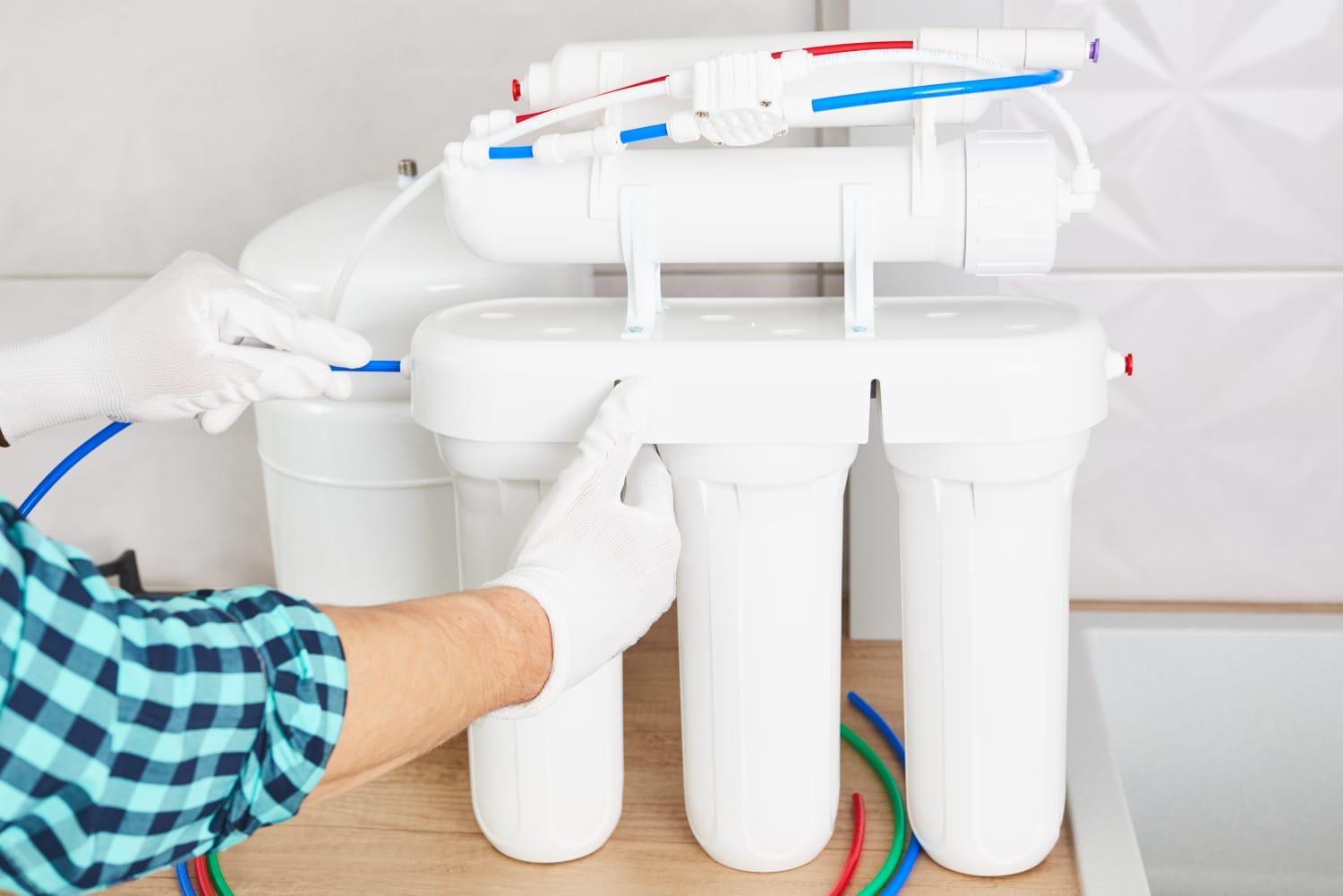
Benefits of Reverse Osmosis System
What Is the Process of Reverse Osmosis?
Reverse osmosis works by applying pressure to a solution and forcing it through a filter, allowing the smaller molecules of water to flow through while leaving the more giant molecules of pollutants on the other side. This enables it to eliminate most impurities (it is part of the process of desalinating salt water to make it potable). Because the high pressure reverses the natural process of pollutants moving across a membrane from contaminated liquid to clean liquid, it is known as reverse osmosis. It’s even employed in other procedures, such as the purification of maple syrup.
This performs better than standard charcoal-based filters at eliminating high levels of fluoride in your water (which can harm your bones and teeth) and is also helpful in removing various other impurities. One disadvantage is that it wastes water, and so-called zero-waste units merely dump waste (contaminated) water into your hot water tank, where it might still end up on your hands or dishes.
The Benefits of Reverse Osmosis
The taste has improved
Reverse osmosis removes additional impurities from your water, reducing undesirable tastes and odors. This also implies that the flavor of beverages created with your water, such as tea or homemade lemonade, will not be affected. Some water pollutants, such as sulfur, can produce strong tastes and odors.
Superior to bottled water
Drinking bottled water can rapidly become prohibitively costly. Also, all that plastic is harmful to the environment, and some bottled water firms acquire their water from regions that are bad for the environment, such as drought-stricken areas.
It’s less expensive than using filtered pitchers
While filtered pitchers are an excellent answer for smaller families, the expense of filters, as well as the time spent acquiring and installing additional filters, may quickly mount up. You also don’t have to deal with the pitcher. You can drink water directly from the faucet, which is considerably handier. Refrigerator water dispensers and ice machines can also be directly linked to the RO system. Water held in pitchers may collect CO2 from the air, causing it to become acidic.
If you purchase a sound system, you must change the filters once a year. Look for one that suggests fewer filter replacements because this usually signifies higher quality filters that better eliminate pollutants.

